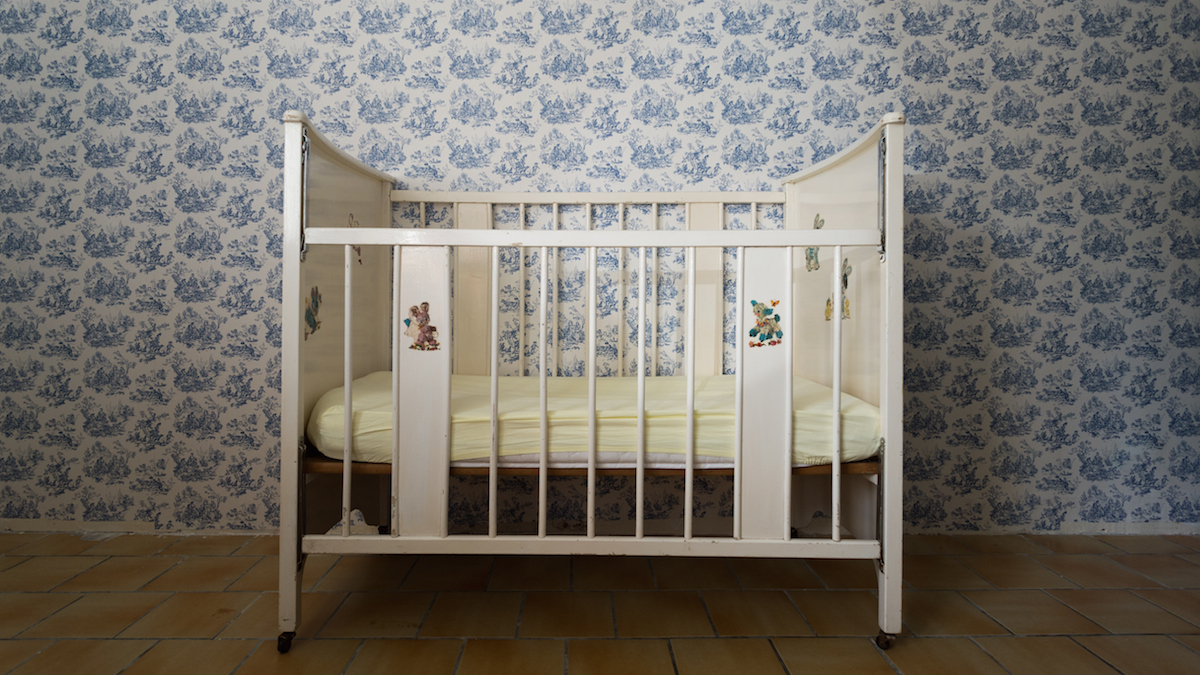
Elena Andres, 38, says she didn't think things could get worse after she left the hospital without her baby.
On May 6, at 37 weeks gestation and after experiencing food poisoning symptoms, Andres was told her daughter no longer had a heartbeat.
On May 7, after an induction and 15 hours of intense labor, Andres gave birth to a stillborn baby girl. The baby weighed 8 pounds and 13 ounces.
We're making it easier for you to find stories that matter with our new newsletter — The 4Front. Sign up here and get news that is important for you to your inbox.
Her name was Maxine.
"It was very traumatic," Andres tells TODAY.com through tears. "Immediately when they held her up you could just tell — she was gray. She was gone."

Courtesy Elena Andres
Andres works for the City of Austin in the Austin Public Health Department. After returning home from the hospital, Andres says she informed her HR department that she'd "be taking maternity leave a little bit early" because she had lost her child.
"They said: 'Oh, I'm sorry to hear that, but you don't qualify for (leave) anymore,'" Andres says.
Andres was told that maternity leave does not apply to people in her situation, but instead is used for people who "give birth and care for a healthy newborn baby."
In a statement to TODAY.com, a spokesperson for the City of Austin said that "the loss of a child is an unthinkable tragedy for any parent" and that they "will ensure any city employee experiencing such a devastating loss receives the support and time they need."
"While the death of a child is not covered under FMLA, there are several other leave options available in the City, such as accrued leave, emergency leave and the City’s leave bank that fellow employees contribute to," the spokesperson said. "We care for and value our staff members and are continuously looking for ways to provide needed support and will update policies to do so when those needs become evident. Our Human Resources Department is currently developing a leave program for when an employee loses a child for consideration and approval by City leadership.”
In order to take the time off, Andres says she used up all her sick time, vacation time and received short-term disability coverage for an additional six weeks off with a note from a doctor.
After The Texas Tribune, which first reported on Andres' story, inquired about the city's policy, Andres says HR offered her four more weeks of paid time off.
She returned to work on July 18.
"The anger that I have at the policies of the city — I'm never going to forget," Andres says. "It's so unnecessarily and unbelievably cruel.
'It was just out of the blue'
Andres was thrilled to learn she was pregnant.
"I'm 38, so I didn't think I'd be able to have more kids," she says. "We were really excited about it."
Andres' pregnancy was relatively uneventful — every ultrasound was normal.
Then, shortly after her 37 week doctor's appointment, Andres and her husband got sick.
Doctors monitored the baby while Andres was treated for dehydration. Assured her baby was OK, Andres was sent home. The next day, Andres felt better but could no longer feel her baby move. She called her doctor again, who told her to return to the emergency room.
"When we got there, the nurses took vital signs and couldn't find a heartbeat," she says. "They called for doctor and again, no heartbeat.
"And that was that," she adds. "It was just out of the blue."
After giving birth, Andres says she was able to hold her baby girl for a few moments.

Courtesy Elena Andres
"The nurses who took care of us were so kind," she says, sobbing. "They cleaned her, wrapped her up and put a little hat on her. They took pictures. They brought us a keepsake box before we left with a clipping from her hair ... one of the nurses made little bracelets with her name on it."
'It was a big kick in the face'
Andres says her postpartum experience was excruciating.
"I couldn't walk normally for a week," she says. "My pelvic pain made it impossible to sleep. I had the normal bleeding that occurs after a pregnancy for two months straight.
"My milk came in — that was horrible," she adds, crying. " I had to put cabbage and ice (on my breasts) to help with the swelling. It was miserable — a constant reminder of what happened. The body doesn't just go back to normal."
Andres also still had to parent her 2-year-old son, Adrian.
"I was devastated. I lost 40 pounds. It was hard to get out of bed. I just cried all the time, but life doesn't stop — I have a toddler," she says. "I love him so much, so he made things easier at times, but a 2-year-old is going to make everything also way harder.
Andres recalls the moment she had to tell her son that his sister wasn't coming home.
"He was excited to help with the baby," she says. "When we came home he asked: 'Where's the baby?' We had to tell him: 'I'm sorry, the baby can't come home. The baby is gone.'"
Andres' difficult postpartum period was made worse, she says, by being denied maternity leave and having to hobble together paid days off work.
“You’re thinking about how you’re going to wake up and feed your other kid and how you’re not going to walk into traffic,” she says, “but I also had to think about am I going to code my time sheet for the next six weeks and still get paid.”
"It doesn't sound like much ... but it was so hurtful," Andres says. "It was a big kick in the face, but when you've already broken both your legs.
This story first appeared on TODAY.com. More from TODAY:



